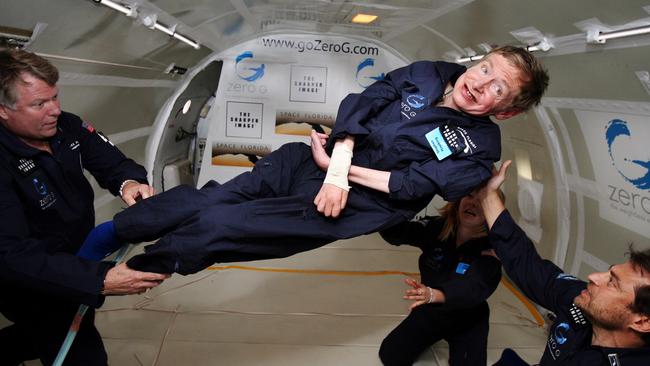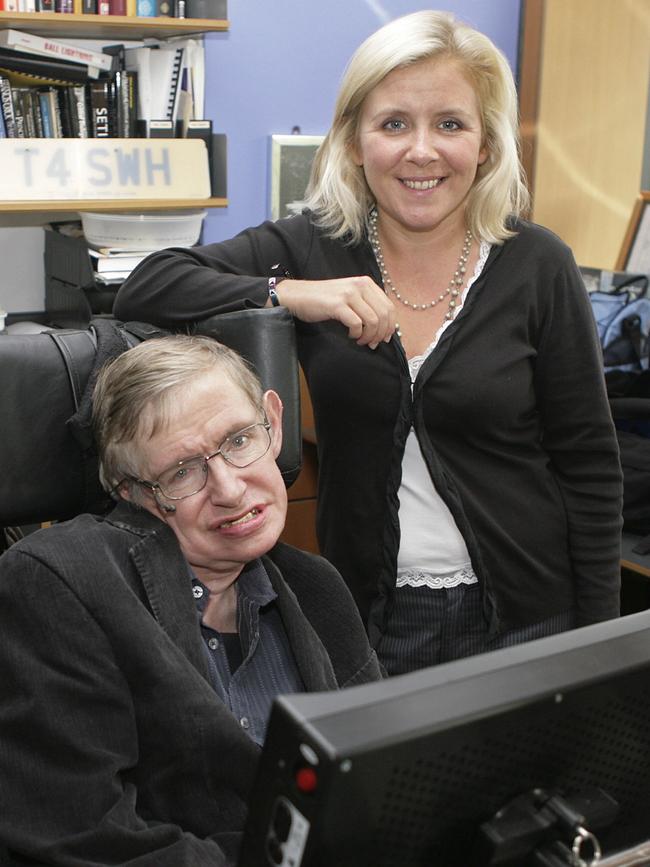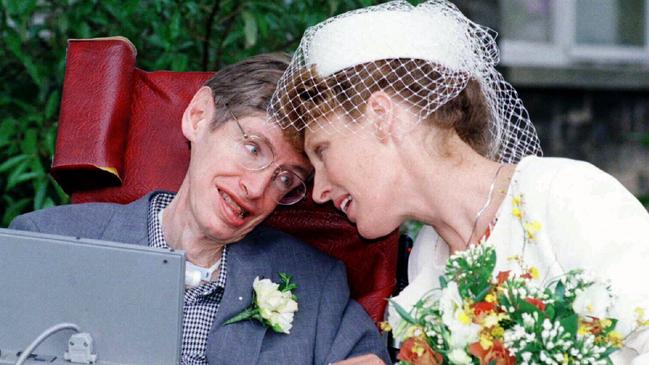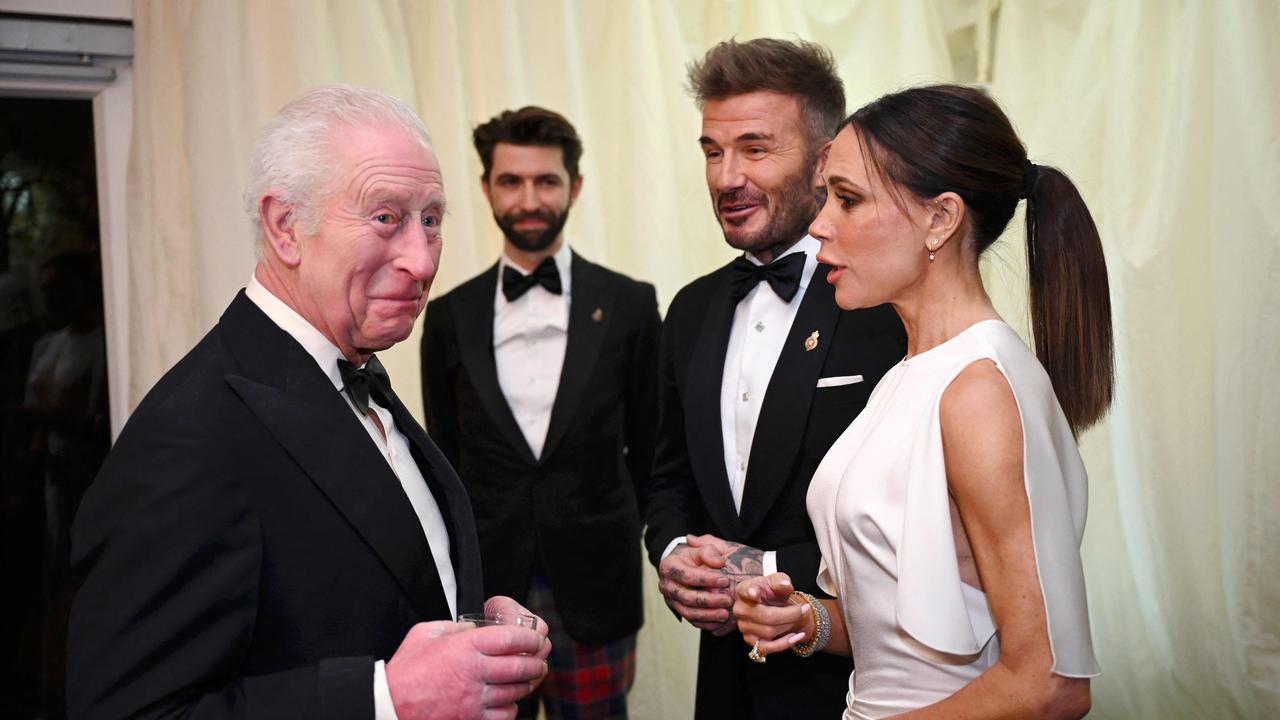Stephen Hawking: how a rational scientist could be infuriating
A fellow physicist has told of his famous friend Stephen Hawking’s less scientific side.

It was a summer’s day in 2006, and Stephen Hawking decided he wanted to go punting. While he was being carried down to the boat, Leonard Mlodinow recalls, Hawking’s head “wobbled freely … like a pendulum”.
As they headed out on to the River Cam, which flows through Cambridge, Hawking was unable to talk without his synthesizer. Instead, his carers turned his head to see the sights while Mlodinow fed him little bits of champagne and strawberries.
Mlodinow, a physicist and author, had been commissioned to co-write a new popular science book with Hawking, and this was one of their first meetings. If Hawking had fallen in, he could well have died. It was, Mlodinow confessed, not exactly a relaxing afternoon on the river.
Later, as all those who spend time around Hawking must, Mlodinow loses his sense of awkwardness and embarrassment as in a series of meetings over several years they work together on the book The Grand Design. Now Mlodinow has turned the process of writing that book into another – about his considerably more famous co-author.
Slowly, through his descriptions of cheek twitches, raised eyebrows, stilted dinner parties and snatched glances, we too see through the motor-neurone disease to get a sense of the man himself. Or at least we think we do.

The problem with writing about Hawking in his later years is there is so little to write. I conducted his last print “interview” in 2017.
On entering his office, his hand was held up for me to shake. My questions had been sent a week before. The answers were there to be read out – a text file, transferred to a synthesizer, sent through the medium of sound to my Dictaphone to be transcribed and put back into a text file. His assistant asked me if I wanted to go through the charade – I asked her to email them over.
Listening to the hum of medical equipment, waiting for the yes or no response to the permitted follow-up questions, there was a strong urge to overinterpret every twitch, utterance and eyebrow. There is a tendency in reports about Hawking to describe twinkling smiles and wry grins.
What was really going on as he sat, apparently impassive, listening? Happiness? Daydreams? Burning rage? Family and carers aside, Mlodinow is among the best placed to answer these questions. He came to understand the nuances of “conversation” – Hawking working with the few muscles over which he maintained control – to glimpse the mind of the man.
The picture that emerges is not so big on twinkling eyes – a bit more on the frustrated, fallible and occasionally infuriating side. And it is all the more human for it.
This was a man who for so many embodied the rationality of science. Yet we learn that he was so psychologically addicted to vitamins that, stranded at a conference during the Icelandic volcanic eruption, he considered asking Prince Felipe of Spain, an acquaintance, to send some on a private jet.
He could be extraordinarily generous, lavishing gifts on the families of his carers. He could also be intensely angry: he once ordered his embarrassed nurse to empty a bottle of urine outside a restaurant because it had no disabled toilets. This gives a clue to the other, less public face of Hawking. He was inspiring, undoubtedly clever, but Mlodinow gently shows us he was also rude, vain and inconsiderate. He was habitually, unapologetically late, he held court like an emperor and he could be utterly crushing when he wanted to be.
In one anecdote, which for some demonstrates his jokey, twinkly side, he disapproved of a talk given by a postdoctoral fellow and interrupted the lecture by spinning his wheelchair in circles. I doubt the speaker found it quite so twinkly.

Another encounter is telling. Mlodinow arrives for dinner with Hawking and his second wife, Elaine. “Who is he?” she snapped on his arrival. “I’m writing a book with Stephen,” he replied. “You brought him for dinner?” she shouted at Hawking. “It might have been nice to let me know. You never do, do you? Because you’re Stephen Hawking and you don’t need to! Well, there’s not enough food!”
When Hawking left the room, she apologised. “I’ve been his slave for 20 years, and it’s enough.” They later divorced.
This anecdote is not only telling, it also contains as much dialogue from Elaine as there is from Hawking in whole chapters of the book. When someone speaks at a few words a minute, they don’t always make for good copy. This is one reason that Mlodinow is forced to go back to a time when Hawking did say things.
Mlodinow is a good writer. You are unlikely to find a better primer to Hawking, or to his physics. Even so, much of it is, to use a journalistic term, a “cuts job” – stories drawn from other sources.
At the end we are left with as good a picture as we are likely to get of a man who was surely the most improbable global celebrity of the early 21st century. Yet I’m not sure how much closer we really are to knowing what was going on behind that twitching cheek and lopsided smile.
Stephen Hawking: A Memoir of Friendship and Physics by Leonard Mlodinow (Allen Lane, 240pp)
The Times


